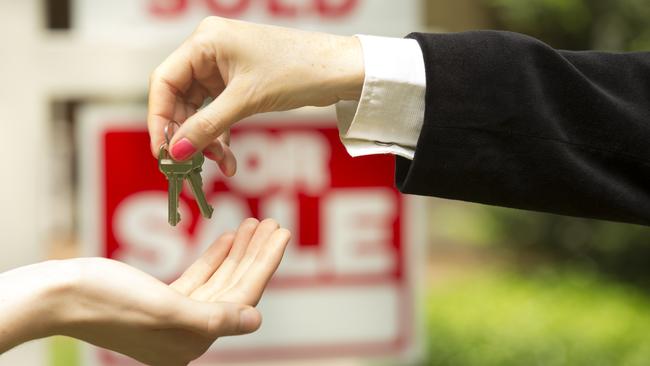In post COVID-19 residential property markets, the house wins
Houses will do better than apartments in a post-COVID market where homebuyer grants have given the lead to owner-occupiers.

As the residential property market shows clear signs of taking less of a hit than many expected, it’s houses — not units — that will be the first to recover, housing analysts suggest.
It turns out that in a “post COVID-19 market” the combination of low density and a selection of new government homebuyer initiatives have turned the residential sector inside out.
Not that long ago unit buyers led by investors drove residential prices, now it’s home buyers — particularly first home buyers — that rule the roost.
The unit market was already struggling with signs of oversupply, especially in capital cities, however the arrival of extended social distancing measures has served to further undermine the attraction of high-density dwellings.
The split picture in the residential market creates a real challenge for investors where the unit market has invariably been the “point of entry” into property. Houses are generally more expensive and carry higher maintenance costs.
As property commentator Pete Wargent of BuyersBuyers.com.au puts it: “Low maintenance units have often been popular with investors and non-resident buyers, but these buyer numbers are well down from their cyclical peaks. Most homebuyers are now looking at houses and in part this is a shift away from density at a time when many are seeking space.”
The latest residential numbers from around the country — with the glaring exception of Melbourne, which remains in lockdown — suggest indicators such as auction volumes and clearance rates are returning to something like pre-COVID-19 crisis levels.
For example, Sydney had 815 homes taken to auction over the last week, against 950 homes in the same period a year ago, with a clearance rate roughly similar at 70 per cent versus 74 per cent in 2019.
“There has definitely been a positive shift in the numbers across the market, some of the headwinds widely expected have not come to pass, but the segment of the market which is still obviously struggling is inner-city units,” says Eliza Owen, head of research at CoreLogic.
The divergence in the national picture is Melbourne, where the auction volume numbers are so low that no reasonable conclusion on price patterns can be made.
According to the Real Estate Institute of Victoria the number of auctions in the city during September were reduced to under 10 per week. However, the first phase of the Andrews government lockdown easing, which kicked off on Sunday, has allowed private inspections of properties for sale or lease to recommence.
With the numbers in the market remaining mixed, one further pointer to the relatively worsening picture in the apartment market is rental income, which has remained unchanged for houses but has fallen 3 per cent since the crisis broke last March.
Moreover, the figures do not fully include rent deferrals or non-payments that have occurred under the “no evictions” ruling which was introduced by the federal government earlier in the year.
The improved property market indicators follow a clear revision of housing market forecasts at the major banks in recent weeks, where projected price drops remain in place but the degree of downturn has been modified. Both CBA and Westpac effectively upgraded their top-to-bottom view on residential property prices, with CBA changing an expected decline in the national residential market from 10 per cent to 6 per cent and Westpac moving from an expectation of 10 per cent price falls to 5 per cent price falls.






